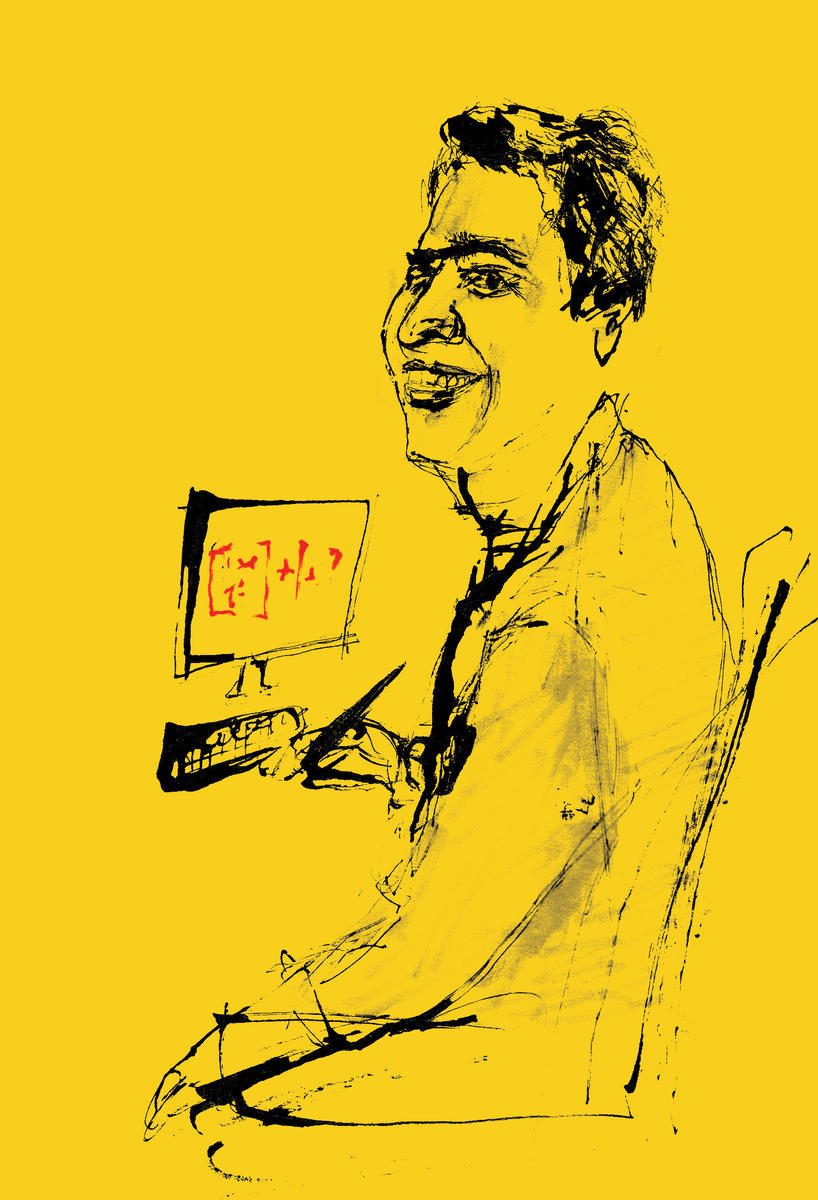
“Welcome to the presentation on basic addition.”
I stare into the empty black frame of the YouTube video — literally a blank digital slate. The voice is jaunty, conversational, ridiculously awake. I half expect it to offer me a menu of options: Press two for advanced suuub-traction. Press three for looong di-vision.
“I know what you’re thinking: ‘Sal, addition doesn’t seem so basic to me.’ Well, I apologize. Hopefully by the end of this presentation it will seem… basic.”
A low-resolution arrow stutters into the frame.
“Let’s say that I start with an old classic. ONE. PLUS. ONE.” The arrow descends, leaving in its wake a jagged, aliased line — the hasty chicken scratch of a Microsoft Paint scribble. “Now I think you already know how to do this but I’ll show you a way of doing this in case you don’t have this memorized or you haven’t already mastered this.”
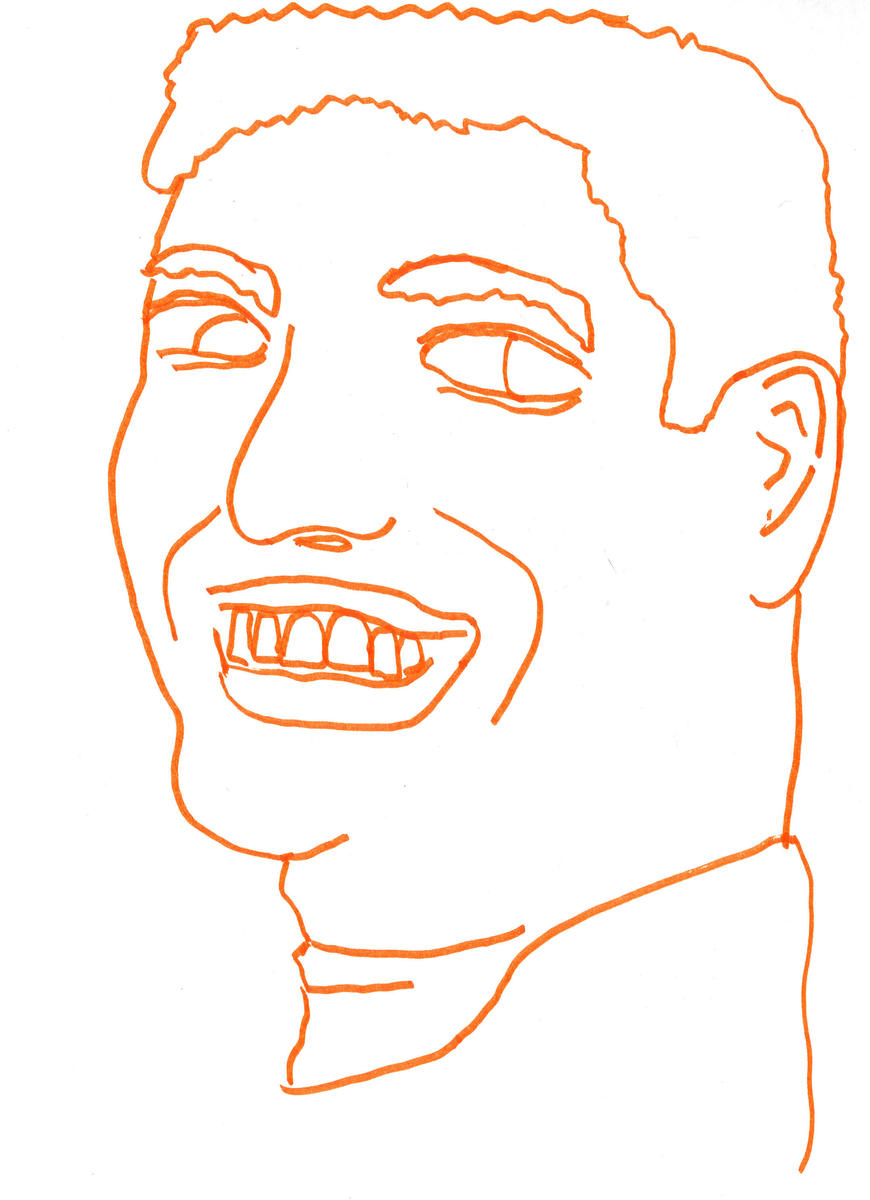
Have I not mastered this? Why can’t I look away?
“Well, if I have one” — the arrow draws a rudimentary circle — “let’s call that an avocado. And then you were to give me another avocado.” Another circle, like a face drawn by a seven-year-old. “How many avocados do I now have? Let’s see: one… two avocados!”
The voice digresses. “Now in case you don’t know what an avocado is, it’s actually a very delicious fruit. It’s actually the fattiest of all the fruits. You probably didn’t even think it was a fruit even if you ate one. So let’s say I had three avocados…”
By the end of the nearly eight-minute presentation, the once-empty screen is chock full of scribbles, colors, and information. I am hungry for guacamole. And I have complete mastery of basic addition — as do 171,603 other people around the world.
The voice belongs to Salman Kahn, who wants to pulverize every last ossified notion you’ve ever had about education. And this whip-smart thirty-three-year-old, with three degrees from MIT and an MBA from Harvard, might just do it. Singled out by Bill Gates as the future of education and recently awarded a two-million-dollar grant from Google, Khan is the founder, voice, and sole faculty member of Khan Academy, the most popular educational site on the internet. At last count some twenty-four million people have profited from its online tutorials.
Six years ago, Khan started making videos to tutor his cousin back home in his native New Orleans. Posted to YouTube, the clips acquired a following. Last year, he quit his day job at a lucrative hedge fund to devote himself to churning out videos on subjects ranging from valence electrons to binomial distribution to the Haitian Revolution. His videos are the educational apotheosis of the Internet age: they’re lo-fi, they’re DIY, they’re short, and they’re free. And if Khan has anything to say about it, they might just be the tools for a revolution in schooling — a future of one-room schoolhouses, accelerated learning, and a whole generation of polymaths.
Par Parekh: So are you the product of the typical Indian-American family, with the parents pushing their kids in a math-science direction?**
Salman Khan: I didn’t come from a traditional Desi family of engineers pushing their kids or whatever. My dad was a doctor — that’s why my parents settled in New Orleans. But I didn’t really know him — they divorced when I was two years old, and he passed away when I was thirteen or fourteen. In high school, my mom and step-dad owned a liquor store in Bucktown.
PP: Your parents owned a liquor store?! Your high school friends must have loved you.
SK: Yeah. Our family was much more like, “We’re going to Bourbon Street tonight,” regardless of what you have to do the next morning. So that math-science thing mostly came from the community. When I was growing up, you’d go to the Desi parties and you’d see the kids four or five years older than you, taking the advanced math classes, graduating early from high school, going off to Harvard. So that just kind of entered your brain. I think that’s a much stronger influence than parents will ever be — your peer group.
PP: What was it like growing up in New Orleans?
SK: I think New Orleans is definitely a quirky city. A lot of cities try to be eccentric and cool, but in New Orleans, it’s not even by design, it’s just the way it is. There’s a culture, an eccentricity, that you’ll find in very few places in the world. Everyone’s a little bit crazy there. I don’t know if I can exclude myself…
PP: How did you negotiate the insanity, growing up there?
SK: I was in a heavy metal band.
PP: You… excuse me?
SK: For most of high school. A death metal band, actually. We called ourselves “Malignancy” until we found out there was another band in Florida with the same name. I was the lead singer.
PP: That’s amazing. But you were still quite a good student, I take it? Were there any especially good teachers that you remember?
SK: You know, it’s less the teachers I remember than the students. I was involved in academic teams — quiz bowl, the math team — starting in middle school. At first you get involved to get out of class for a day, but you quickly realize that these kind of extracurricular activities are far more stimulating than anything that goes on in the classroom. I’d say a lot of my love of math came from being in that world, around peers who are challenging you in a very collaborative way.
PP: Did you do any teaching or tutoring back then?
SK: As part of those teams, yeah. In high school I would sit down with a couple of freshmen and say, “Look, guys — I know you’re only in Algebra 2, but there’s going to be calculus at the competition next week, so I’m going to teach you some calculus right now.” I’d like to think Khan Academy is, to a certain degree, a scalable version of that. I’d like to think that everyone now gets Sal as an on-demand peer.
PP: So you see yourself not as a tutor but as a peer of Khan Academy students?
SK: I’m a tutor… but the most valuable tutor, I think, is someone who is just having a conversation with you, without any assumption of mental or experiential superiority. It’s just someone who says, “Hey look, I happen to have some information in my brain that you may not have been exposed to yet. But by the end of this video we’re pretty much going to be at the same point.”
PP: You’re really trying to instill a deeper knowledge in your students. I always feel that learning how to understand things intuitively is more gratifying than memorizing the superficial basics.
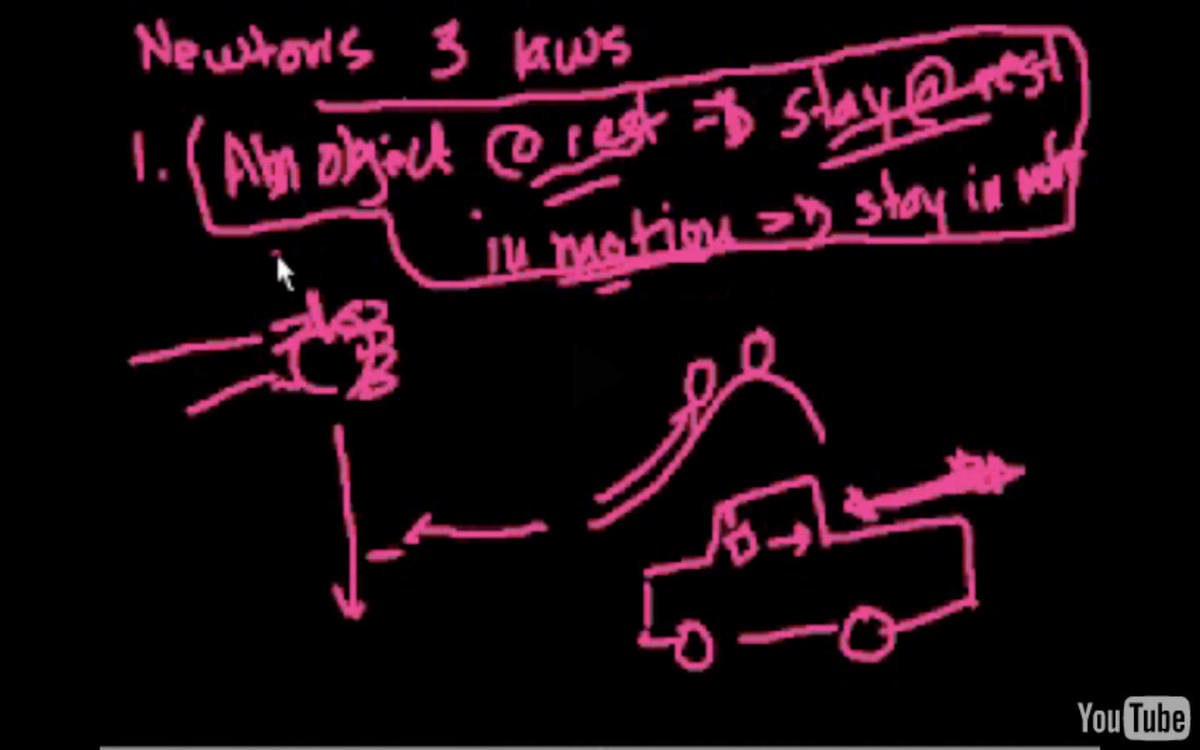
SK: I think physics is a good example of that. Especially mechanics. Literally everything can be intuited by, “force equals mass times acceleration” and “acceleration is change in velocity over time.” Now, what you see in physics classes or in physics textbooks is just one formula after another. Those are okay if you’re in some kind of competition, but they’re horrible if you’re really trying to get an intuition of what’s happening. I mean, Newtonian physics is the most intuitive of all subjects — it’s almost hard to make it unintuitive. Yet they do it!
Back in Louisiana I was the physics state champion. I won the whole thing, and honestly all I went with was my intuition. For me, that was confirmation that I was on the right path — I’d look at all these jokers doing all this crazy stuff, and I was just going with this very basic core intuition, and I was able to outperform them. I knew that what I was doing wasn’t genius — it was literally common sense. You almost had to be a genius to process things the other way.
PP: Do you feel like people have a good sense of mathematics?
SK: I feel like there’s so much mathematical illiteracy in this country. People associate math with arithmetic, which is fine — but in my mind they are very fundamentally different things. Arithmetic is one thing, and it’s useful. But all these people who are looking for spirituality and listening to philosophy lectures, trying to get to some core meaning — they’re ignoring mathematics. I mean, look at something like Euler’s Identity, e iπ = −1, and look where it comes from. E comes out of continuous compounding interest, from this one part of reality. And you have pi, which is the ratio of a circle’s circumference to its diameter — another part of reality. Then i, an imaginary number invented by engineers because they needed the square root of negative one. And then all of them, connected in this mythical and beautiful way. That type of thing transcends usefulness. I mean, that’s purity, right? There’s no human language obfuscating the truth. You’ll hear people discuss religion or whatever, and they’re like, “What is God?” and they’re really just debating words. People are looking for a higher meaning and it’s right there in front of them. Almost any other description of reality is a superficial one — it’s based on our own senses and notions of causality and time and space. Mathematics is independent of all of that.
PP: Did you have an interest in the humanities? Were you much of a reader?
SK: Actually that’s another pet peeve I have with the education system — science fiction is completely discounted in our education system. I think it’s really important. It makes you question what exists.
PP: Science fiction is the last place that philosophy is being disseminated in exciting ways.
SK: Some people say it should be called speculative fiction. It’s so true. You read something like Asimov’s Foundation, with its characters thinking about history in scales of tens of thousands of years, how societies rise and fall. What our history textbooks fail to do is, they fail to give us massive scope. I’d like to think something like the Khan Academy can help prevent the Dark Age by providing long-lasting access to knowledge. For now it exists on the Internet, which is already this distributed architecture. But eventually it could be put onto little self-powered devices so that even if there were an apocalypse, someone two hundred years from now could dig one up and say, “Oh, wow, what’s this?! Oh, now I can find out how to bring society back!”
PP: What else inspires you?
SK: I’m almost afraid to sound grandiose, but… have you watched the John Adams HBO thing? I don’t want to sound like George Bush saying Jesus is my favorite moral philosopher. But I’ve really come to appreciate how radical those people were. So I would definitely point in that direction — I don’t know if it’s inspiration, exactly, but it gives me hope for what we’re trying to accomplish.
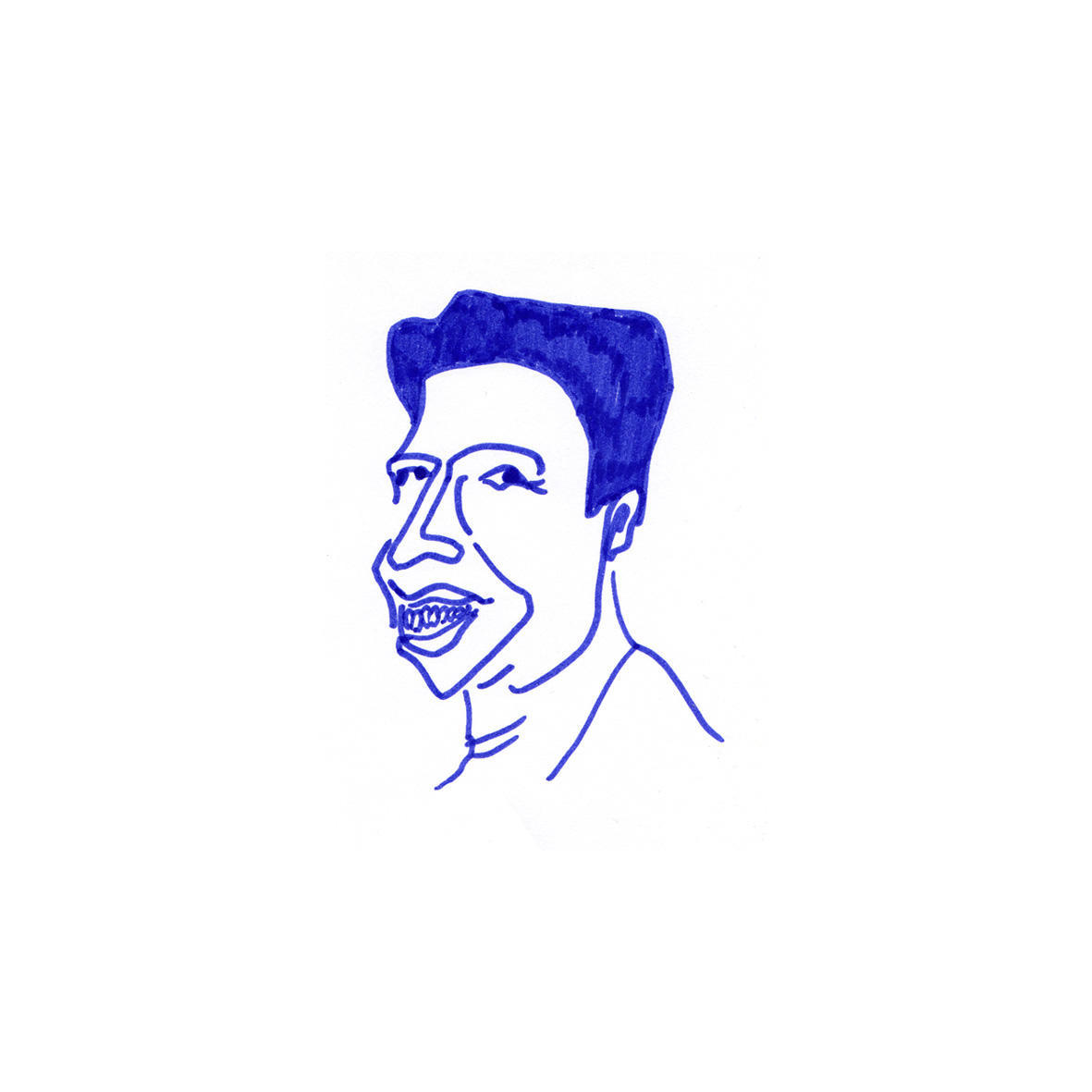
PP: One of the things I love about your videos on the Khan Academy is the way that storytelling and education are so intertwined. Is that something you think about?
SK: I’m trying to introspect a bit more about what’s good and bad about Khan Academy. And I’ve actually been observing other storytellers. There’s an art to storytelling, but you have to be careful. People think being a good teacher means being engaging — everyone is always asking, “How do you keep people engaged?” — but the key thing is communicating knowledge holistically. I’ve been thinking about stand-up comedians — the intersection between people who know the subject matter and people who have really good senses of humor — I think that’s where we might find some of the best teachers.
PP: Are you a specific type of learner? Visual? Auditory?
SK: You know, I don’t really think there’s a lot to those categories, “visual learner” and “auditory learner.” I think good instruction in any one of those formats will appeal to both kinds of people. I used to think that I was a written learner because I would get so lost — or bored — in lectures. Then I would read the books, but the books still weren’t that good. But if someone explains something really well to me? Nothing can beat that. I would say that the way everyone truly learns is by experiencing it for themselves, by actually doing problems. So I think everyone is an action-based learner.

PP: What did your wife think about this when you said, you know, “I’m going to quit my job and do the Khan Academy full-time.”
SK: It didn’t come as a complete shock. It had been an obsession of mine for four or five years before it came to that point. And she was doing a medical residency at the time, so she was pretty busy herself. But you know, every now and then we’d go to a family reunion and I’d just ignore everyone and hide in a closet and everyone would wig out.
The fact is, we’d gotten to a point where we weren’t going to go hungry if I quit my job for a year or two. I don’t want to say I’m a risk-adverse person — I’m a risk-aware person. I went through every iteration of possible circumstances that could happen to us, career-wise, monetary-wise, economic-wise, and at the end of the day I thought making this collection of videos would make my life worthwhile, so I did it.
PP: So your wife knew you had a little crazy streak in you?
SK: Oh yeah, she knew. We met when she was a freshman at MIT and I was a senior. I liked her right away, but she thought I was little bit… you know, I had a certain look that didn’t appeal to her back then. Both my ears were pierced with these fairly large earrings. I mean, I wasn’t an extreme person, but she thought I was… Anyway I ran into her at orientation and I pretty much just put all my cards on the table. And she was kind of weirded out by my forwardness. So, there were a couple of iterations, but she finally gave in. She gets credit for putting up with a lot of things — not just Khan Academy.
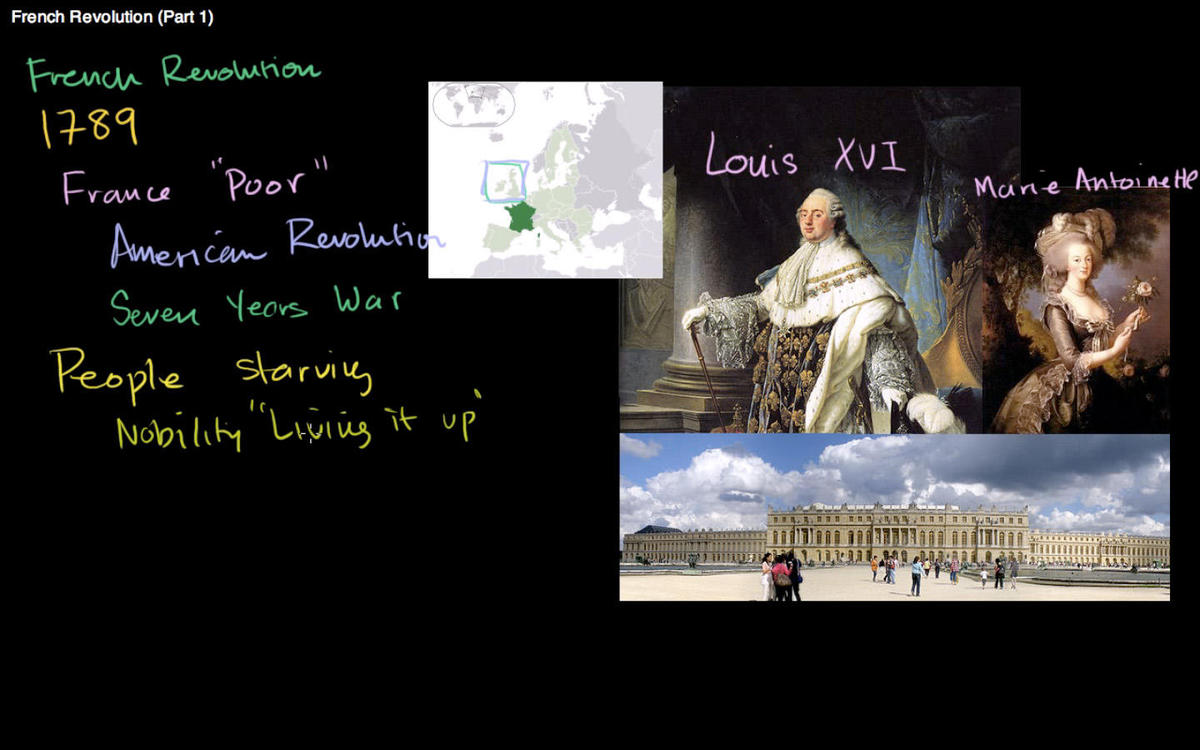
PP: How did you choose your subjects? I was looking around on the site and noticed that the history section is all about the French Revolution and the Napoleonic Wars. Why those?
SK: I started with the French Revolution because that was something I was eager to learn more about. I kind of understand twentieth-century European history, so it was just a gap in my knowledge. So I started there and my goal was to get through Napoleon. Then I shifted gears into organic chemistry. But I’ll go back and do more. Every now and then, just for fun, I’ll go back into my comfort zones and cover something in finance or electrical engineering that I haven’t covered yet, but a lot of what I’m doing right now isn’t in my traditional comfort zone, and that’s what makes it fun and challenging for me. Right now I’m learning to become an expert in organic chemistry, and maybe figuring out some fundamental questions that the professionals might not have the intuition to know. And the payoff isn’t a grade or a degree, it’s the expression of my understanding in a form that can be consumed by people for the rest of time. It’s a pretty exciting payoff.
PP: What does it mean to be an expert in a field?
SK: I think the qualifications that are required are a good understanding of a topic before you teach it and a good ability to communicate. Being able to be casual. Being able to be freeform, to speak without a script. I mean those are the requirements. Do you need a PhD for that? Absolutely not. History is packed with self-learners who had no formal education but who were great teachers or did great things in their fields. By no stretch of the imagination do I think you need any type of formal credential to be a good teacher. A credential is more of an indicator. If I meet two random people on the street and one is a PhD in physics and one dropped out of high school, there’s a strong indicator that the guy with a PhD in physics is going to be a better physics instructor than the guy who dropped out… but you never know. A credential is just a strong indicator.
PP: Is that what the purpose of a traditional school is — to provide credentials?
SK: I think the education establishment has to clarify what a school is. It’s marketed as a place to learn, but the reality is that everything about school is about credentialing and filtering. In most universities today, especially in the introductory courses, you have these broadcast lectures where kids do two exercises in a vacuum and they take an exam to get a grade and they go to the next concept. Everyone gets one pass at it — it doesn’t matter if you were sick or if your parents were arguing that night or whatever, you have an exam and you get a C and: okay, you’ll never be a doctor. It’s just stupid. The educational system right now is broken. It’s just a huge filtering mechanism. You and I were lucky because we got through the filter okay.
With Khan Academy, kids can learn at their own pace. They can pause a lesson, they can repeat it, they can go back and fill in gaps in their knowledge. You can’t do that in a university. Part of the Khan Academy story is that we’re heavily analytics-focused — every time a kid watches a video or does an exercise, we’re getting data off of that so we can optimize the experience for other students. With the Google grant, we’re doing a whole new software piece, so that once a student gets ten answers in a row correct, it moves them up to the next concept.
Khan Academy isn’t just a video library — it’s practice, feedback, and assessment at the same time. It’s actually silly to do snapshot assessments. It’s so hard for me to talk to people in the education community because they can’t get their heads around this. Shouldn’t assessment be used to figure out what someone should learn next, rather than just labeling them and whisking them off to the next concept even if they don’t have a complete understanding?
So let’s say little Jimmy is twelve and he wants to show MIT, “Look, I know calculus, here’s my data from Khan Academy.” I think that’s far more powerful than saying, “I got an A in calculus.” And there’s a whole other level that we’re just starting to implement, which is peer-to-peer teaching. You learn the most when you are teaching others. You can get a superficial understanding just preparing for an exam, but you get a deeper understanding when you have to teach and re-teach the material, because other students are asking you questions. So if you’re having trouble with one of the videos, you can get help from someone who’s ahead of you in the sequence and who’s been shown to be a very good tutor.
So that’s the direction we’re going. And to my mind, it’s far better than what goes on right now.
PP: So you don’t see a place for examinations or tests like the SAT?
SK: No, no — I think examination is important, but it shouldn’t be tied to artificial milestones. Like, you’re eighteen, so you have to take the SAT. I’m not going to be able to replace the SAT, of course, but if you learn from the Khan Academy, at some point — you might be eight years old or you might be fifty — we’re going to say, “You know what, we think you can take the SAT now,” or “Why don’t you take the GED, you’re ready for it now, you’ll pass.” The approach ought to be, ”Keep learning until you’ve learned it, and once you’ve learned it, go and prove it to the world.”
PP: A lot of people say that technology is actually making kids dumber. They’re on the Twitter, they’re on Facebook too much, they play video games all the time. They’re not processing or learning information like they did back in the days of book learning. What do you think technology is doing for education?
SK: Technology isn’t making people dumber. It’s upped the stakes of what it takes to get someone’s attention. I really think that what technology is doing is this: it’s preventing people from doing boring things. My son is twenty months old and my biggest concern is he’ll become addicted to video games. That’s a legitimate concern. It’s not that technology is making people dumber, but it’s providing a more compelling experience. And there’s a certain risk to that.
But on balance I think it’s a huge opportunity. And, in fact, all of these interactive video games have shown that people can be captivated by technology in a very non-superficial way. So it’s like a wide-open field for something like the Khan Academy to leverage the same kind of tools to get stuff into people’s brains. A huge component of our future programming is going to be simulations and games. I ran a little summer camp here in the summer and I did a market simulation where six kids played Risk and the other twenty kids had an after market, trying to predict how many armies each of the players would have. That was way more captivating for them than any video game. They were all there in person and they learned a ton about markets and information and secondary markets. We were leveraging game mechanics.
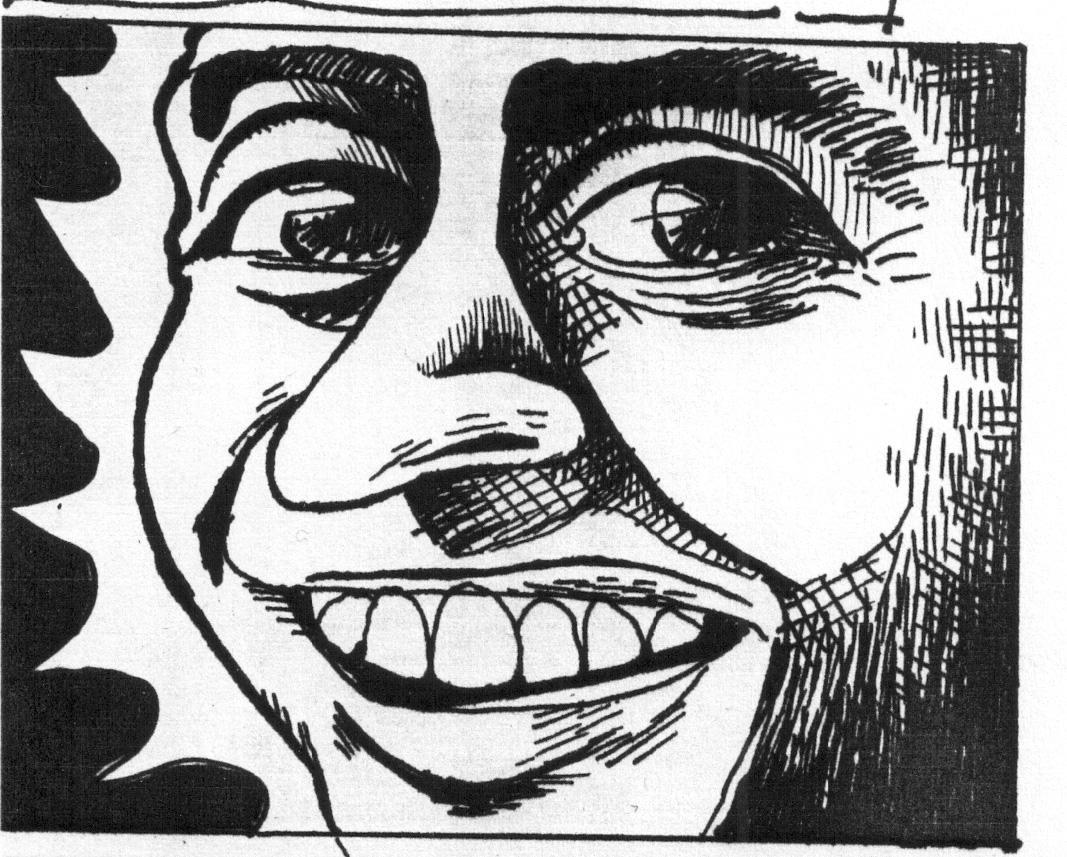
Of course, Facebook is just a huge exercise in confirming one’s existence. If I’ve done something on FarmVille or broadcast something on Facebook, I get not only what you could call a false sense of accomplishment, I also get to show it off to my friends, and it confirms my existence. With the Khan Academy, although the content comes first, people should also be able to feel proud that they learned a certain concept, or that they were able to teach a certain concept. People should be able to get fame or notoriety within a certain social circle within a certain social framework.
You know, Apple sent me an iPad — I guess I’m like Kobe Bryant or something. And to watch firsthand as my son, a toddler, interacts with this stuff… he can count to twenty, and I never even taught him how to count to three! We downloaded a bunch of apps, and he plays with them, and he’s learning. The iPad is infinitely patient. Just the other day we heard him in the corner sounding out letters of the alphabet. And it’s all from technology! Some pretty crazy stuff is going to happen in the next ten to fifteen years.
PP: Put on your speculative fiction cap for a second. What do you think’s going to happen to education in the next ten to fifteen years?
SK: Well, I hope to play an active role in it. When my son goes to elementary school, it’ll probably be a one-room schoolhouse. And if it doesn’t exist we’ll probably start it. There’ll be kids of all ages in the same room and they’ll use Khan Academy for one or two hours a day, just to get their core knowledge and core intuition in a lot of subjects. And I’m one hundred percent certain that they are going to learn much faster in those two hours than they would in the traditional model, spending eight hours in class. Then the rest of the day is freed up for really creative stuff — painting pictures and composing music and building robots and writing stories. And I suspect that when these kids are twelve or thirteen they’ll be capable of making original contributions to society, whether it’s in the arts or the sciences. Not only that, but I think it’ll be more original than the contributions we see now, because they won’t have the restrictions of publishing and tenure and all that crap.
There’s always this thought that when kids get accelerated they’ll turn into freaks. But I’m not talking about doing this just to my son — I want to do it for a whole generation.
PP: And how will that accelerated generation differ from the current one?
SK: I look at my wife’s situation. I mean, she’s done it by the book. And we had to plan when our son was going to be born to, like, the month, because she was finishing her fellowship in rheumatology and there was a window of opportunity. But what kind of society is it where you have to say, “Okay, I can have a kid in 2009 because there’ll be six months when I’m not working eighty hours a week.” I think it’s a tragedy. There’s a whole class of people who have deferred gratification for so long that they’ve forgotten what gratification is. Eighty percent of Americans right now would be happier, not with an extra dollar, but with an extra hour. But no one realizes it!
Accelerating people is not about pushing them, it’s about liberating them. It’s amazing how many people think it’s bad if kids learn things faster. They think it’ll be like a pressure-cooker environment. I can’t predict what the total effect will be, but I don’t think it’s anything but positive when you allow people to learn at their own pace, in a no-risk environment, and have them actually learn as opposed to just jump through hoops.
PP: Your approach is getting a lot of attention. Tell me about your number-one fan — Bill Gates.
SK: You know, I was shocked. Bill Gates has watched more videos than anyone I know. He really appreciates Khan Academy, he understands it. He’s a big fan, which was kind of surreal for me. But, he’s a good guy to make happy. I was honestly fairly intimidated meeting him. He is as smart as you think he is. He’s really a product guy — he likes to play with things, so he had a lot of things to say about the software.
From the very beginning of Khan Academy people have been saying, “Why don’t you don’t get more teachers? There’s no way you’re going to be able to scale this thing.” I was expecting Mr. Gates to tell me the same thing, but he actually told me the opposite. He said, “Don’t lose the consistency. The reason this is so far out ahead is because the videos have this consistency. And,” these are his words, “after you watch the calculus videos you feel like watching the chemistry videos, because you want to see how Sal teaches that.” There’s a lot of magic in the story and the personality behind it, and his fear is that if we have a larger team I’ll get distracted and not make videos. Basically I had nothing but positive vibes from him.
PP: And you’ve just got a major Google grant. What are you going to do with that money?
SK: Half of it is for translating the core Khan Academy video library into ten languages. Bidoun is sort of an Arab magazine, right? We’re actively looking for people who can translate or even re-teach the content in other languages. Something like Arabic will have to be re-taught because the writing is just so different. And the people who do the teaching are going to be heroes in the Arabic-speaking world — they will really be able to elevate the level of teaching in the region.
PP: So you’re focusing all of your own energy on making videos?
SK: I’m definitely going to focus the majority of my time on making videos. But I’m not opposed to a future reality where there would be other lecturers at the Khan Academy. I’m one hundred percent certain there will be. I just think they’ll have to be discovered rather than hired. We’re hoping that we can leverage the peer-to-peer teaching program to discover future Sals. But you know, if you know someone who could see themselves doing something like this, they should start making videos. If they make fifty, sixty videos and it looks like this is what they’re meant to do, we’d love to have them join the faculty.
